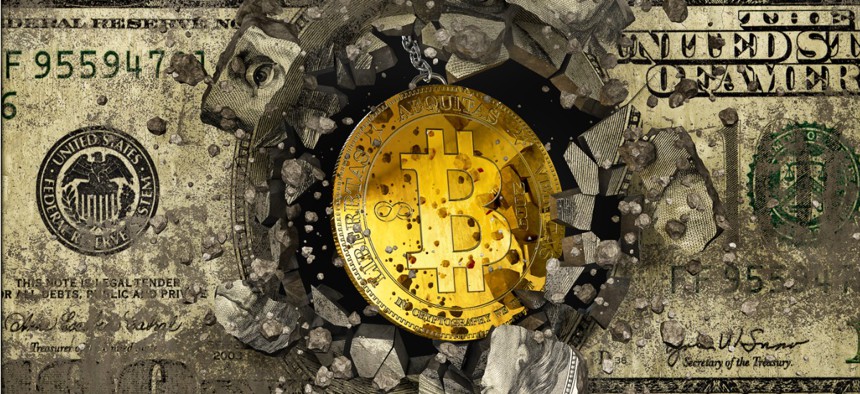Critical Update: Cryptocurrencies to Save the Day?

urfinguss/istockphoto.com
After activists turned out to kill an amendment that would have set back the cryptocurrency industry, Nextgov decided to look at how the volatile technology can be used as a force for good.
Cryptocurrencies—digital tokens traded for goods and services online similar to traditional money—have earned a bad reputation in many technology circles for being used to support illicit and sometimes violent behavior or for pump-and-dump “investment” schemes.
But like any technology, its value to society shouldn’t be measured merely by the shifty ways in which it is used.
A recent debate in Congress highlighted this issue, as senators submitted an amendment to the trillion-dollar infrastructure bill that would have required cryptocurrency brokers to track and report to the IRS on the goods and services being purchased over their platforms. Activists sprang into action—but not just blockchain advocates.
Groups like Fight to the Future drove more than 40,000 phone calls to members of Congress, according to Lia Holland, the organization’s director of campaigns and communications.
“It makes sense to me that the government would want people who are making a bunch of money on cryptocurrency to pay their taxes. That is not what the issue is here,” Holland told Nextgov. “The issue with this provision is that it was incredibly poorly written by people who don't understand the nature of decentralized technologies in so far as many of the players in the space who are small developers, who are volunteers for art projects or just making wallets that people are putting their cryptocurrency into don't actually have, structurally with how decentralization works, the ability to surveil people and to report on what they're doing with their money.”
So, what future were the activists fighting for? What uses for cryptocurrencies could be worth that level of effort?
This episode of Critical Update—the last of Season 10—dives into how activists, migrants, content creators and vulnerable communities like sex workers and others who operate in moral and legal grey zones are looking to decentralized banking options to find stability. The volatile cryptocurrency sector might be the answer.
Listen to the full episode below or download from Apple Podcasts, Google Podcasts or your favorite platform.






